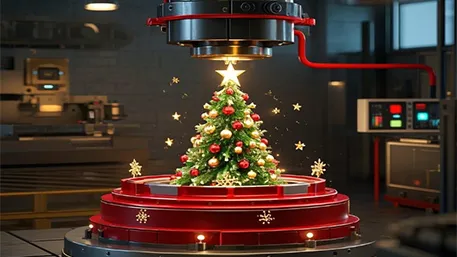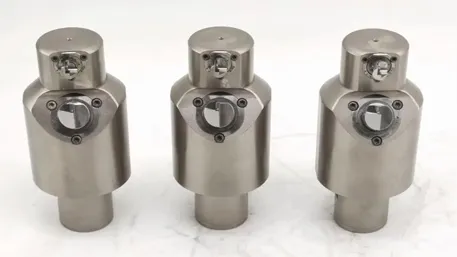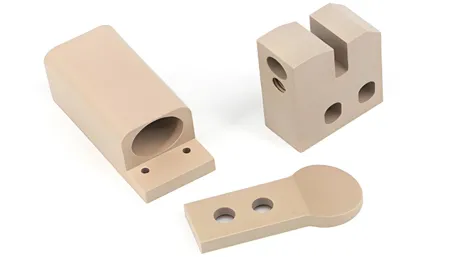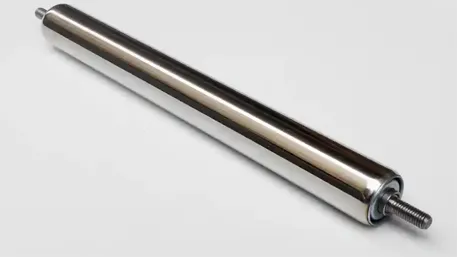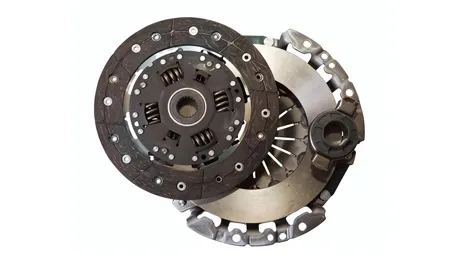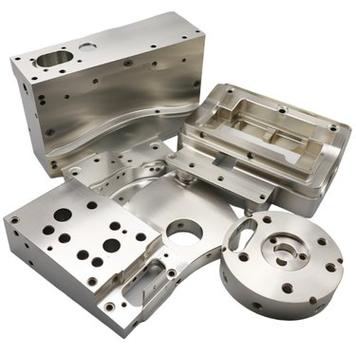In the ever – advancing realm of modern manufacturing, CNC precision mechanical parts customization has emerged as a crucial service, catering to the diverse and exacting needs of industries ranging from aerospace to automotive, robotics, and more. By leveraging the power of Computer Numerical Control (CNC) technology, we offer high – accuracy, reliable, and customized mechanical parts that are engineered to perfection. This article delves into the technical capabilities, customization process, material selection, quality control, and industry applications of CNC precision mechanical parts customization, highlighting its significance in driving innovation and efficiency across various sectors.
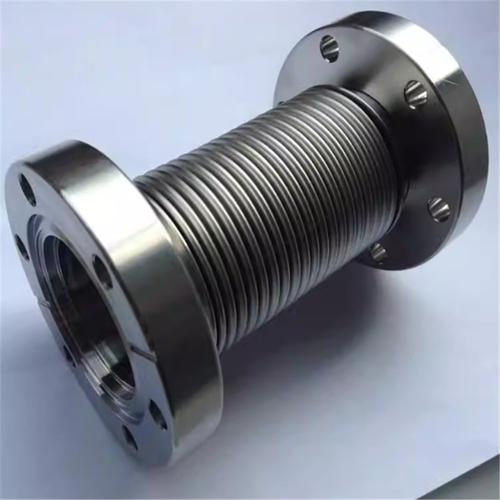
I. Technical Capabilities: Precision at Its Finest
(A) Ultra – High Dimensional Accuracy
CNC machining systems are meticulously calibrated to achieve unparalleled dimensional accuracy in the production of mechanical parts. With positioning accuracy reaching ±0.002mm and repeat positioning accuracy of ±0.003mm, we can fabricate parts with extremely tight tolerances. Whether it’s a small – scale component for a micro – robotic device or a large – format part for heavy machinery, these precise tolerances ensure a perfect fit within complex assemblies. For example, in the manufacturing of engine components, the bore diameters, shaft lengths, and critical surface profiles can be maintained with utmost precision, enhancing the overall performance and longevity of the machinery.
(B) Complex Geometry Machining
Five – axis CNC machining technology empowers the creation of mechanical parts with highly intricate geometries. From parts with complex internal channels for fluid or gas flow, to components with organic shapes for ergonomic designs, and parts with multi – angled surfaces for optimized functionality, the five – axis system can execute these designs with remarkable precision. Compared to traditional machining methods, five – axis CNC machining reduces setup – related errors from ±0.01mm to within ±0.003mm. This not only improves the quality of the parts but also significantly boosts production efficiency by over 60%, enabling the rapid manufacturing of custom mechanical parts even with the most challenging designs.
(C) Advanced Machining Techniques
To meet the diverse requirements of different materials and applications, we employ a wide range of advanced machining techniques optimized by CNC control. For hard materials like titanium alloys and hardened steels, specialized high – speed machining and cryogenic cooling methods are used to reduce tool wear and maintain surface integrity. In the case of soft materials such as aluminum alloys, precision finishing techniques like electrochemical machining can be applied to achieve a mirror – like surface finish. These advanced techniques, combined with CNC – controlled process parameters, ensure that each mechanical part is manufactured to the highest quality standards.
II. End – to – End Customization: Meeting Your Specific Needs
(A) In – Depth Requirement Analysis and Design Conceptualization
When you approach us for CNC precision mechanical parts customization, our experienced engineering team initiates detailed discussions to understand your application, performance expectations, and design preferences. We consider factors such as the operating environment (temperature, humidity, corrosive conditions), the mechanical loads the part will endure, and any specific functional or aesthetic requirements. Using state – of – the – art CAD/CAM software, we generate multiple design concepts. We then collaborate closely with you, refining the designs until they perfectly align with your vision, whether it’s a minor modification to a standard part or a completely new design for a specialized project.
(B) Strategic Material Selection and Cost Analysis
Based on the finalized design, we recommend the most suitable materials for your custom mechanical parts. The choice of material depends on various factors, including strength requirements, corrosion resistance, heat tolerance, and cost. For applications requiring high strength and durability, materials like alloy steels and stainless steels are often preferred. In contrast, for lightweight applications, aluminum alloys and magnesium alloys are excellent options. Simultaneously, we conduct a detailed cost analysis, factoring in material costs, machining complexity, and production volume, to provide you with a transparent and competitive quote.
(C) Precision Manufacturing and Order Tracking
Once you approve the design and quote, production commences. You can monitor the progress of your order in real – time through our dedicated online tracking platform. Our skilled technicians adhere to strict manufacturing standards, using advanced CNC turning, milling, drilling, and EDM (Electrical Discharge Machining) machines to produce mechanical parts that meet the highest quality benchmarks. We keep you informed at every stage of the production process, from raw material procurement to the final inspection.
(D) Rigorous Quality Assurance and Timely Delivery
After production, each custom mechanical part undergoes a rigorous quality inspection. Only parts that meet our exacting standards are shipped to you. We perform dimensional inspections using coordinate measuring machines (CMMs) to ensure that all critical dimensions are within ±0.002mm. Surface finish measurements are taken to ensure that the surface meets the required roughness specifications for optimal functionality and aesthetics. In addition, we conduct mechanical tests, such as tensile strength testing, fatigue testing, and hardness testing, to validate the performance of the parts. We also offer comprehensive after – sales support, addressing any concerns you may have during the product’s lifecycle.
III. Strategic Material Selection: Choosing the Right Material for Optimal Performance
(A) Alloy Steels
Alloy steels are widely used in CNC precision mechanical parts due to their high strength, toughness, and wear resistance. They contain alloying elements such as chromium, nickel, molybdenum, and vanadium, which enhance their mechanical properties. For example, 4140 alloy steel, with its good combination of strength and hardenability, is commonly used in the manufacturing of shafts, gears, and other components that are subject to high stress and heavy loads.
(B) Stainless Steels
Stainless steels are preferred for applications where corrosion resistance is crucial. They contain chromium, which forms a passive oxide layer on the surface, protecting the material from rust and chemical attack. 304 stainless steel, with its good corrosion resistance and formability, is suitable for a wide range of applications, including food processing equipment, medical devices, and general industrial components. For more demanding environments, 316 stainless steel, which contains molybdenum for enhanced corrosion resistance, is often the material of choice.
(C) Aluminum Alloys
Aluminum alloys are highly valued for their lightweight properties, excellent formability, and good corrosion resistance. Alloys such as 6061 – T6 and 7075 – T6 are commonly used in aerospace, automotive, and electronics industries. 6061 – T6 offers a good balance of strength, corrosion resistance, and machinability, making it suitable for a variety of applications, from structural components to consumer products. 7075 – T6, on the other hand, is a high – strength alloy often used in applications where maximum strength – to – weight ratio is required, such as in aircraft structures and high – performance automotive parts.
(D) Titanium Alloys
Titanium alloys are known for their high strength – to – weight ratio, excellent corrosion resistance, and good heat tolerance. They are widely used in aerospace, medical, and high – end automotive applications. Ti – 6Al – 4V is one of the most commonly used titanium alloys, offering a combination of strength, lightness, and biocompatibility, making it suitable for applications such as aircraft engine components, medical implants, and sports equipment.
IV. Stringent Quality Control: Ensuring Excellence in Every Part
(A) Raw Material Inspection
All incoming raw materials for CNC precision mechanical parts are subject to strict quality checks. We use spectroscopic analysis to verify the chemical composition of the materials, ensuring that they meet the required standards. Additionally, hardness testing, tensile testing, and microstructure analysis are performed to ensure the material’s integrity and suitability for the intended application. For example, when using alloy steel, we confirm that the alloying element ratios and mechanical properties meet the specified requirements.
(B) In – Process Monitoring
Throughout the manufacturing process, we employ statistical process control (SPC) techniques to monitor key manufacturing parameters. Regular sampling and data collection help us identify and correct any potential issues promptly. We monitor parameters such as cutting speeds, feed rates, tool wear, and coolant flow during machining. In the case of heat – treatment processes, we closely control temperature, time, and cooling rates. If any parameter deviates from the set values, we can adjust the process in real – time to ensure consistent product quality.
(C) Final Product Validation
Before shipping, each part undergoes a comprehensive inspection. We use CMMs to verify dimensional accuracy, ensuring that all critical dimensions are within ±0.002mm. Surface roughness measurements are taken to ensure that the surface finish is optimized for the part’s intended function. Non – destructive testing methods, such as ultrasonic testing and dye penetrant inspection, are used to detect any internal or surface – breaking defects. Only parts that pass all these tests are considered ready for delivery.
V. Diverse Industry Applications: Transforming Manufacturing Across Sectors
(A) Aerospace Industry
In the aerospace industry, CNC precision mechanical parts are essential for the construction of aircraft and spacecraft. From engine components to structural parts, these parts need to meet the most stringent requirements in terms of precision, strength, and weight. Our custom – made parts, such as turbine blades, landing gear components, and fuselage structures, are manufactured with the highest level of precision using advanced materials and machining techniques, ensuring the safety and performance of aerospace vehicles.
(B) Automotive Industry
The automotive industry relies on CNC precision mechanical parts for engine components, transmission systems, suspension parts, and more. Our customized parts help improve the performance, efficiency, and durability of vehicles. For example, precision – machined engine blocks, cylinder heads, and crankshafts contribute to better engine performance and fuel economy, while lightweight and high – strength suspension parts enhance vehicle handling and stability.
(C) Robotics Industry
In the rapidly growing robotics industry, precision mechanical parts are crucial for the smooth operation and accurate movement of robots. Our custom – made parts, such as robotic arms, joints, and gears, are designed and manufactured to meet the specific requirements of different robotic applications. The high precision and reliability of these parts ensure that robots can perform complex tasks with accuracy and repeatability, making them an essential part of modern manufacturing and automation processes.
(D) Medical Industry
In the medical field, CNC precision mechanical parts are used in a variety of applications, including surgical instruments, medical devices, and diagnostic equipment. These parts need to meet strict hygiene and biocompatibility standards. Our custom – made parts, such as orthopedic implants, dental prosthetics, and medical device components, are manufactured with the utmost precision using high – quality materials, ensuring the safety and effectiveness of medical treatments.
VI. Frequently Asked Questions (FAQ)
(A) What is the typical precision of CNC precision mechanical parts?
Our CNC machining can achieve a dimensional tolerance of ±0.002mm, ensuring precise fit and optimal performance in your applications.
(B) How long does it take to customize mechanical parts?
Lead times vary depending on the complexity of the design and order quantity. Simple designs can be completed in 3 – 5 days, while more complex ones may take 7 – 10 days. Rush orders are available upon request.
(C) Can you customize parts according to my specific design?
Yes, our team of experts can work closely with you to understand your design requirements and create custom mechanical parts that meet your exact specifications. We use advanced CAD/CAM software and CNC machining technology to bring your designs to life.
(D) What types of materials can be used for custom mechanical parts?
We can work with a wide range of materials, including alloy steels, stainless steels, aluminum alloys, titanium alloys, and more. Our engineers will recommend the most suitable material based on your application requirements and budget.
(E) How do you ensure the quality of custom mechanical parts?
We have a comprehensive quality control system in place, including raw material inspection, in – process monitoring, and final product validation. All parts are inspected using advanced measuring equipment and undergo various mechanical tests to ensure they meet our high – quality standards.
VII. Customer Testimonials
An aerospace company approached us to develop custom titanium alloy parts for their new aircraft engine. Our team utilized advanced CNC machining and material selection techniques to create parts that met the strict aerospace standards. The new parts not only reduced the weight of the engine by 15% but also improved its overall efficiency and reliability. The company was highly satisfied with the performance and quality of our custom parts, leading to a long – term partnership.
A robotics manufacturer needed custom aluminum alloy parts for their new line of industrial robots. We designed and manufactured parts with complex geometries using five – axis CNC machining technology. The high – precision parts ensured smooth and accurate movement of the robots, significantly improving their performance and productivity. The customer reported a significant increase in customer satisfaction and a boost in sales of their robotic products.
Reach Out Now for Your CNC Precision Mechanical Parts Customization!
Whether you are in the aerospace, automotive, robotics, medical, or any other industry, our team of experts is ready to provide you with high – quality, customized CNC precision mechanical parts. We offer a seamless end – to – end service, from design and material selection to manufacturing and quality assurance. Contact us today to discuss your project requirements and take the first step towards getting parts that will enhance the performance and innovation of your products.

